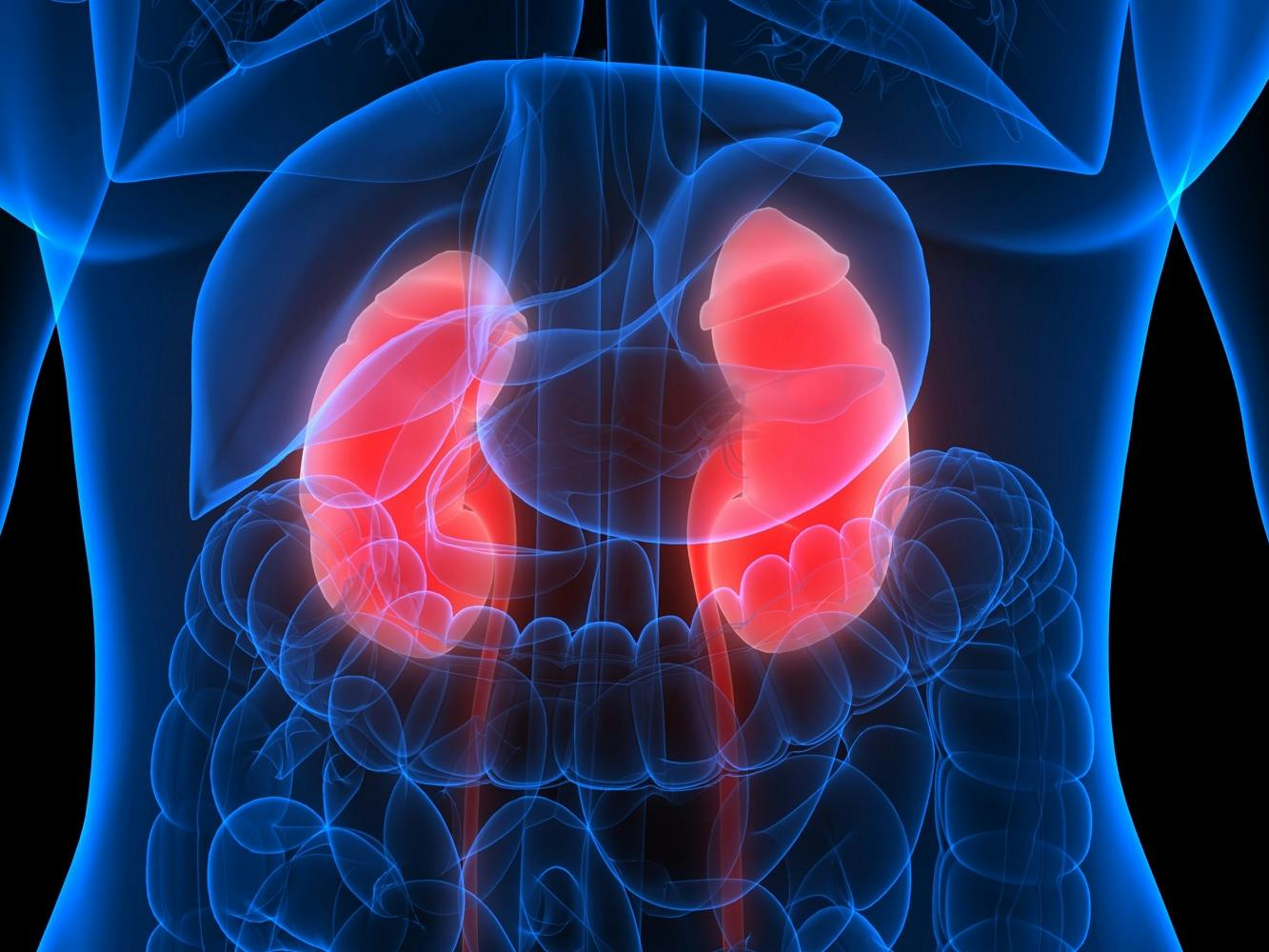
Your kidneys are two bean-shaped organs, each about the size of your fist.
More than half of people over the age of 75 have kidney disease. Here’s how to prevent it–or at least slow the progression.
One in seven of all American adults has kidney disease. It can happen at any age, but you’re more at risk if you’re over the age of 60. As you get older, so do your kidneys! In fact, it’s thought that more than half of people over the age of 75 have kidney disease.
“Many people don’t realize that, as we age, we lose kidney function,” Beth Piraino, MD, National Kidney Foundation President, said in a recent press release. “Unfortunately, older Americans may not realize they are at increased risk until it is too late.”
It’s not just your age, either. Certain other medical conditions, like high blood pressure or type 2 diabetes, raise your risk of developing kidney disease. Here’s what you need to know to help keep your kidneys healthy and happy.
What your kidneys do
Your kidneys are two bean-shaped organs, each one about the size of a fist. You’ll find them right below your rib cage, on either side of your spine.
Your kidneys perform a very important job: They filter extra water and waste out of your blood to create pee. They balance the salts and minerals in your blood – in fact, they filter all the blood in your body every half hour! Your kidneys also help control your blood pressure, make red blood cells, and keep your bones in tip-top shape.
If you have kidney disease, your kidneys are damaged and can’t filter blood like they normally would. This means waste builds up in your body. Over time, this can cause complications like:
- Anemia
- Low calcium levels in your blood
- Loss of appetite
- Depression
- Increased susceptibility to illness
This damage usually occurs very slowly, so you’re not aware of it.
How to keep your kidneys healthy
Although kidney disease is common in older adults, there’s a lot you can do to prevent it or keep it from getting worse.
1. Eat a healthy diet
Think fruits, veggies, whole grains, and low-fat or fat-free dairy products. Cut back on the saltshaker: Aim for less than 2,300 mg of sodium a day. Salt can raise your blood pressure and also strain your kidneys. Also, skip sugary drinks like colas, and limit the booze—both are linked to an increased risk of kidney disease.
If you already have kidney disease, your diet may be a little more restricted. You’ll have to limit the amount of protein you eat and follow a low-potassium diet. You’ll also have to avoid phosphorus, which is found in packaged foods, deli meats, and some fresh meat and poultry. This type of diet may be hard to follow, so ask your doctor to refer you to a nutritionist who specializes in kidney disease. They can help you figure out tasty (but kidney-friendly) fare.
Does Medicare cover nutritionists?
2. Get your blood pressure under control
About 85% of people with chronic kidney disease also have high blood pressure. If yours is high, talk to your doctor about taking medication. Certain blood pressure lowering drugs – called angiotensin-converting enzyme (ACE) inhibitors or angiotensin receptor blockers (ARB) – do double duty: They treat your hypertension and also slow down kidney disease!
3. Don’t smoke
Smoking slows blood flow to your kidneys, which can make kidney disease worse. Also, if you have high blood pressure, smoking can make the blood pressure meds you take less effective.
4. Stay active
Exercise won’t just make you feel better — studies show it can help reduce your risk of developing kidney disease! This may be because it helps reduce high blood pressure, a risk factor for kidney disease.
5. Stay at a healthy weight
Obesity increases the risk of diabetes and high blood pressure. These are the two most common causes of kidney disease. Even if you don’t have either, obesity itself can put more strain on your kidneys.
6. Keep an eye on your blood sugar
Diabetes injures the small blood vessels in your body. When that happens in your kidneys, they can’t work properly.
7. Watch your meds
Over-the-counter nonsteroidal anti-inflammatory drugs like ibuprofen (Advil) and naproxen (Aleve) can raise your risk of developing kidney disease. Talk to your doctor about whether or not it’s safe for you to take them. Be careful with heartburn meds too—frequent use of OTC proton pump inhibitors contained in medications like Nexium, Prevacid, and Prilosec is also linked to kidney disease.
8. Make sure you get your Zzzs
Getting enough sleep isn’t directly linked to kidney disease. But it can help lower your blood pressure and blood sugar levels, two risk factors.
9. Get regular checkups
Your doctor can run certain lab tests to screen for kidney disease at your annual wellness exam. There are two main kinds:
A urine test called ACR (urine albumin-to-creatine ratio). It looks at how much albumin, a type of protein, is in your urine. If it’s positive, it could be a sign of early-stage kidney disease.
A blood test that looks for creatinine. This is a waste product that builds up in your blood when you have kidney disease. Your doctor then plugs this into a math formula to calculate something called your glomerular filtration rate (GFR). Anything above 90 is considered normal. If you are between 60 and 90, you may have early-stage kidney disease.
How Medicare can help
Medicare part B covers outpatient doctor’s visits, including visits with a kidney specialist for kidney disease. It also usually covers nutrition therapy, where you receive nutrition advice from a registered dietician, as well as dialysis or a kidney transplant if you need it.
In fact, if you have kidney failure—otherwise known as end-stage renal disease—you can start Medicare before age 65 to cover the costs of dialysis or a transplant. You might also be able to enroll in a Special Needs Plan offered by some Medicare Advantage insurers. These plans are tailored for people with certain chronic health conditions and usually offer additional benefits.
Check out all the plans in your area and the benefits available to you with our easy-to-use plan finding tool!
Additional sources
- ClearMatch Medicare: Find a Medicare Plan
- The American Journal of Medicine: High Fitness Levels Reduce Risk of Chronic Kidney Disease
- American Kidney Fund: Quick Kidney Disease Facts and Stats
- National Kidney Foundation: Aging and Kidney Disease
- Journal of Clinical Medicine: Proton Pump Inhibitors and Risk of Chronic Kidney Disease: Evidence from Observational Studies



